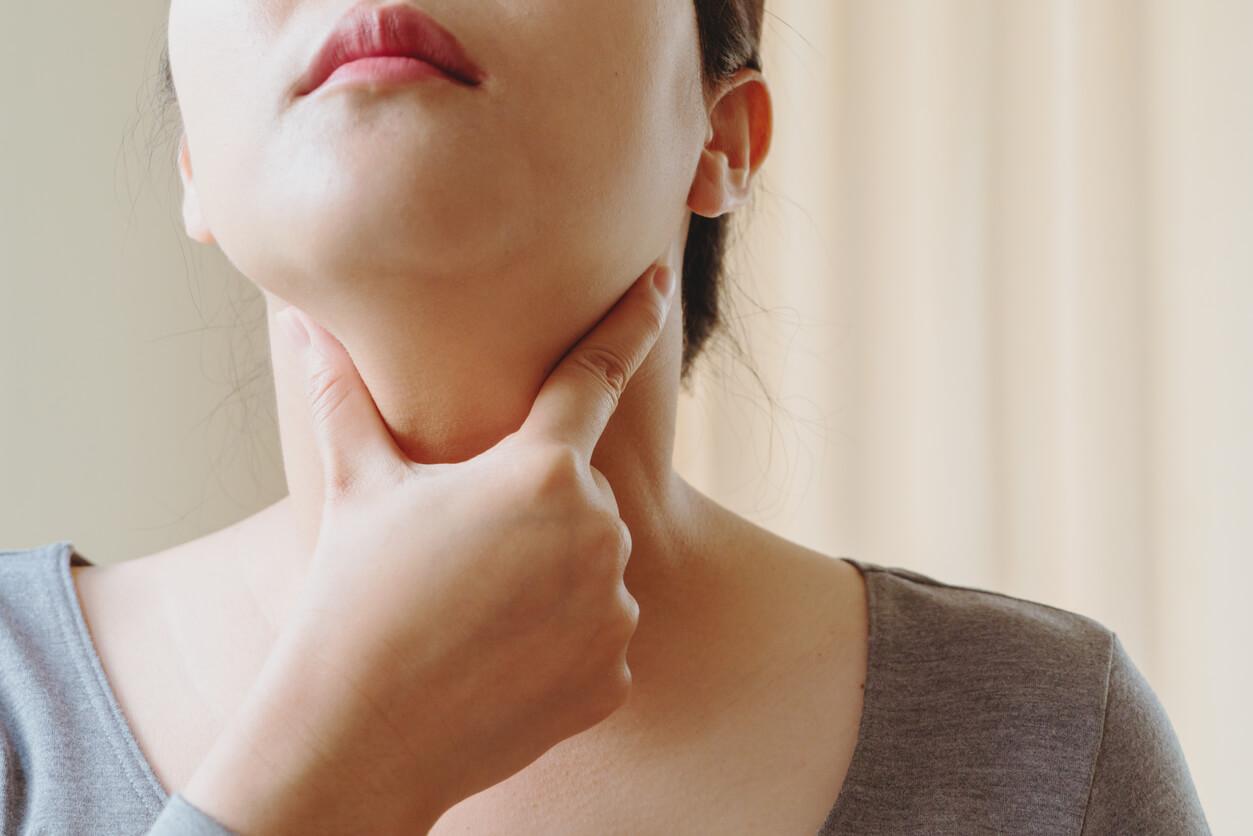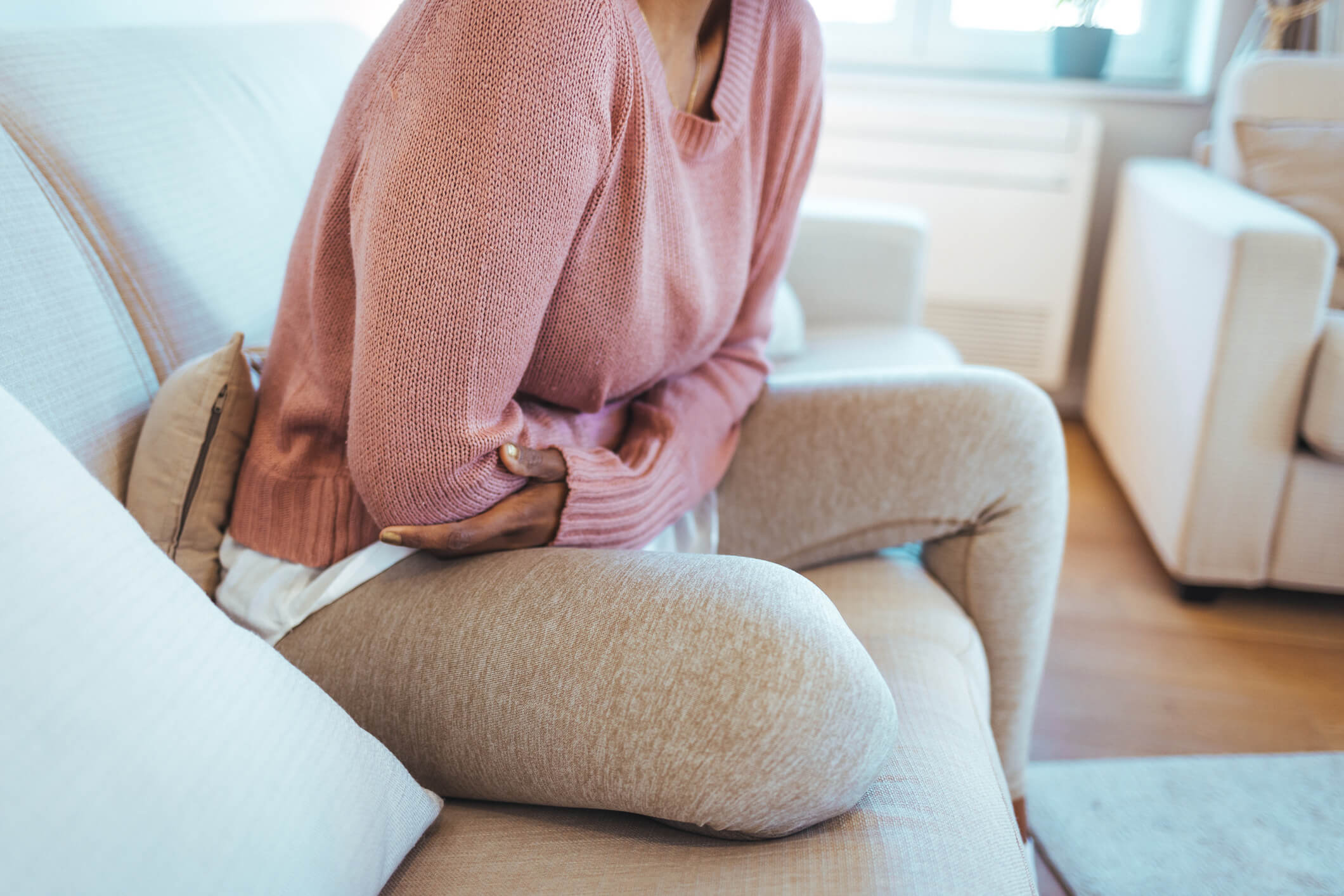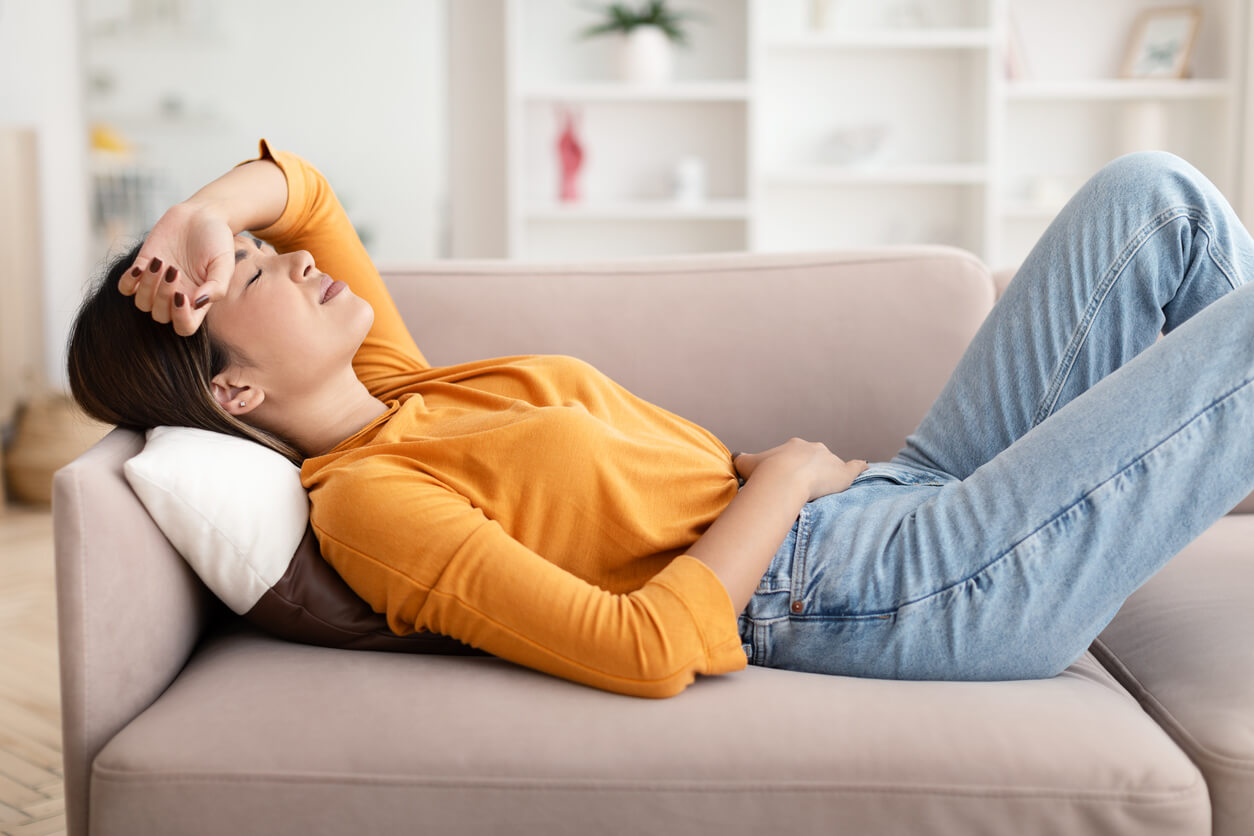How to Stop Hot Flashes with Natural and Medical Remedies
Key takeaways
- Hot flashes are sudden, short bursts of sweating, flushing and chills. They're usually caused by hormone level changes during perimenopause and menopause.
- Natural relief options for hot flashes include soy isoflavones, black cohosh and cooling your environment. You can also consider lifestyle adjustments like avoiding spicy foods, limiting alcohol and caffeine, and managing your stress levels.
- Medical treatments to stop hot flashes include hormone replacement therapy (HRT), low-dose antidepressants and fezolinetant.
Hot flashes are one of the most common symptoms of perimenopause and menopause. These sudden waves of heat, often accompanied by sweating, flushing, and sometimes chills, usually affect the face, neck, and chest and can last from one to five minutes. When they strike at night, they’re called night sweats; together, they’re known as vasomotor symptoms (VMS).
The exact cause of VMS, or hot flashes and night sweats, is still being studied. However, research suggests that VMS is likely caused by a change in hormone levels women experience during menopause.
Around 55% of perimenopausal women and 85% of menopausal women experience hot flashes, sometimes multiple times a day. While they’re not dangerous, hot flashes can be overwhelming, unpredictable, and exhausting.
In this article, we’ll explore what causes hot flashes, along with effective natural and medical remedies to help you find fast relief and improve your quality of life.
How to stop hot flashes with natural remedies
Hot flashes are the menopause symptom that most women seek treatment for. Fortunately, a handful of natural and medical remedies are available to help you find quick and long-lasting relief.
1. Supplement your diet with soy isoflavones
Isoflavones, or phytoestrogens, are natural compounds made by certain plants and legumes. Isoflavones share many of the same chemical properties as estrogen. Because of this, they are often used as an alternative treatment for many different kinds of hormonal disorders and conditions, including hot flashes.
Soy isoflavones, which are naturally occurring in soybeans, may be used to help reduce hot flashes. Soy isoflavones can reduce the frequency of hot flashes by over 25% if taken consistently.
However, a longer treatment period may be needed to notice their full effects. It takes approximately 48 weeks for soy isoflavones to reach 80% of their full effect. That said, it only takes 13 weeks of treatment to start reaping half of its maximum benefits.
In addition to their estrogen-like qualities, isoflavones are also rich in anti-oxidant, anti-inflammatory and anti-microbial properties. Soy isoflavones can be found over-the-counter (OTC) as oral dietary supplements and in certain foods.
Isoflavone-rich foods include:
- Soybeans
- Barley
- Fava beans
- Broccoli
- Peanuts
- Cauliflower
2. Consider black cohosh supplements
Black cohosh, also known as actaea racemosa, is an herb that has been used medicinally for centuries. Native to eastern North America, Indigenous Peoples used black cohosh to help treat infections, musculoskeletal pain, fevers and irregular menstrual cycles.
In modern times, black cohosh is mainly used to naturally treat different women’s health issues. Primarily, menopause symptoms like hot flashes, night sweats and vaginal dryness. It can be found as an oral tablet, a tincture and a loose-leaf tea.
In 2002, the World Health Organization (WHO) added black cohosh as an approved treatment for menopause symptoms. However, more research is needed to understand the efficacy and safety of black cohosh. While a few clinical studies did find it to be effective at stopping and preventing hot flashes, others found it made little to no difference.
Side effects of black cohosh can include stomach cramping, vaginal spotting, weight gain and a rash. People with a history of liver disease should not use black cohosh. Black cohosh should be used under the supervision of your healthcare provider.
3. Create a cool atmosphere
One of the most effective ways to stop a hot flash in its tracks is to cool down. When possible, try to lower the temperature in your home, office or car. Additionally, standing or sitting near a fan may provide quick relief from an ongoing hot flash. Consider keeping a cool compress or a gel pack in your freezer. This way, you can gently hold it against your face, chest or the back of your neck when you first notice symptoms.
It’s not always possible to control the temperature or have access to a fridge. This is why many women choose to carry small portable fans for when they’re on the go. These fans come in a variety of shapes and sizes — some are handheld, and some can be placed around your neck to keep you cool.
If you don’t have access to a portable fan or leave it behind, don’t worry. There are still things you can do to cool off when you’re in a pinch. Wet a paper towel, a napkin or a piece of cloth with water — room temperature water is okay, too. Use it as you would a cold compress. If possible, try to step outside if there’s a breeze or open a window.
4. Stay hydrated throughout the day
Drinking enough water throughout the day can help you stay cool and hydrated. Being properly hydrated is what allows your body to carry out its essential functions. One of those key functions is temperature regulation. Therefore, drinking a few sips of cold water before bed may help you prevent night sweats.
5. Consider other lifestyle adjustments
Lifestyle changes can be a great way to supplement any natural or medical remedies for hot flashes. In many cases, women with mild hot flashes may begin to notice improvements in their symptoms by making adjustments to their daily habits.
Lifestyle adjustments that can help prevent and manage hot flashes include:
- Steer clear of spicy foods
- Avoid alcohol
- Limit your caffeine intake
- Maintain a healthy weight
- Quit smoking
- Dress in layers
- Manage your stress levels
- Yoga and mindfulness meditations
- Daily exercise
How to stop hot flashes with medication
Vasomotor symptoms can be incredibly disruptive, and there are prescription treatments available that can help treat them. If the natural remedies and lifestyle adjustments above aren't helping to relieve your hot flashes, talk to your healthcare provider to see if any of the therapies below are right for you.
1. Ask your doctor about hormone replacement therapy
Hormone replacement therapy (HRT) is the most effective treatment option for menopausal hot flashes. It works by replenishing some of the hormones that your ovaries stopped producing as abundantly during menopause.
There are two main types of HRT. Estrogen-only HRT is recommended for women who’ve had a hysterectomy. Estradiol (Estrace) is the most common estrogen-only medication used to treat hot flashes.
Estrogen and progestin/progesterone HRT is for women who still have their uterus. Medroxyprogesterone (Provera) is commonly prescribed alongside a medication that contains estrogen for combination HRT.
Hormone replacement therapy is highly effective at managing hot flashes, but like all medications, does have risks. Long-term use of HRT may increase your risk of heart disease, heart attacks, blood clots, stroke, breast cancer and dementia. Talk to your doctor about whether or not you may be a good candidate for HRT.
2. Consider low-dose antidepressants
Certain antidepressants — selective serotonin reuptake inhibitors (SSRIs) and serotonin and norepinephrine reuptake inhibitors (SNRIs) — can be used in low doses to treat hot flashes. These medications work by helping increase your brain's serotonin levels.
Serotonin is a chemical that helps regulate your body's temperature, sleep quality, sex drive and more. And when estrogen decreases after menopause, it can lead to a 50% reduction in serotonin production. However, low-dose antidepressants may help; women typically begin to notice a significant decrease in the frequency of their hot flashes after four to eight weeks.
SSRIs and SNRIs that may be used to treat hot flashes and night sweats:
- Venlafaxine ER (Effexor XR)
- Paroxetine (Paxil)
- Citalopram (Celexa)
- Escitalopram (Lexapro)
- Sertraline (Zoloft)
- Venlafaxine (Effexor)
3. Consider non-hormonal hot flash medications
Antidepressants are not the only non-hormonal prescription medication that may be used to treat hot flashes. In 2023, the Food and Drug Administration (FDA) approved fezolinetant (Veozah), the first treatment specifically made for hot flashes and night sweats.
Additionally, certain medications used to treat other medical conditions have been used off-label to treat perimenopausal and postmenopausal symptoms. Clonidine (Catapres), which is approved to treat high blood pressure, is often prescribed off-label to help manage hot flashes and night sweats.
How Sesame can help
Hot flashes can affect your quality of life. If you'd like to explore treatment options, Sesame offers an affordable online menopause subscription for hot flash treatment from a licensed medical provider.
Simply answer some questions about your medical history, schedule a same-day video visit with a provider of your choice on your schedule, and discuss your symptoms during your call.
Your provider can order lab work (included in the subscription price) to determine what's causing your hot flashes, and can prescribe a range of treatments, including hormonal and non-hormonal therapies, to help you find fast, affordable relief.









